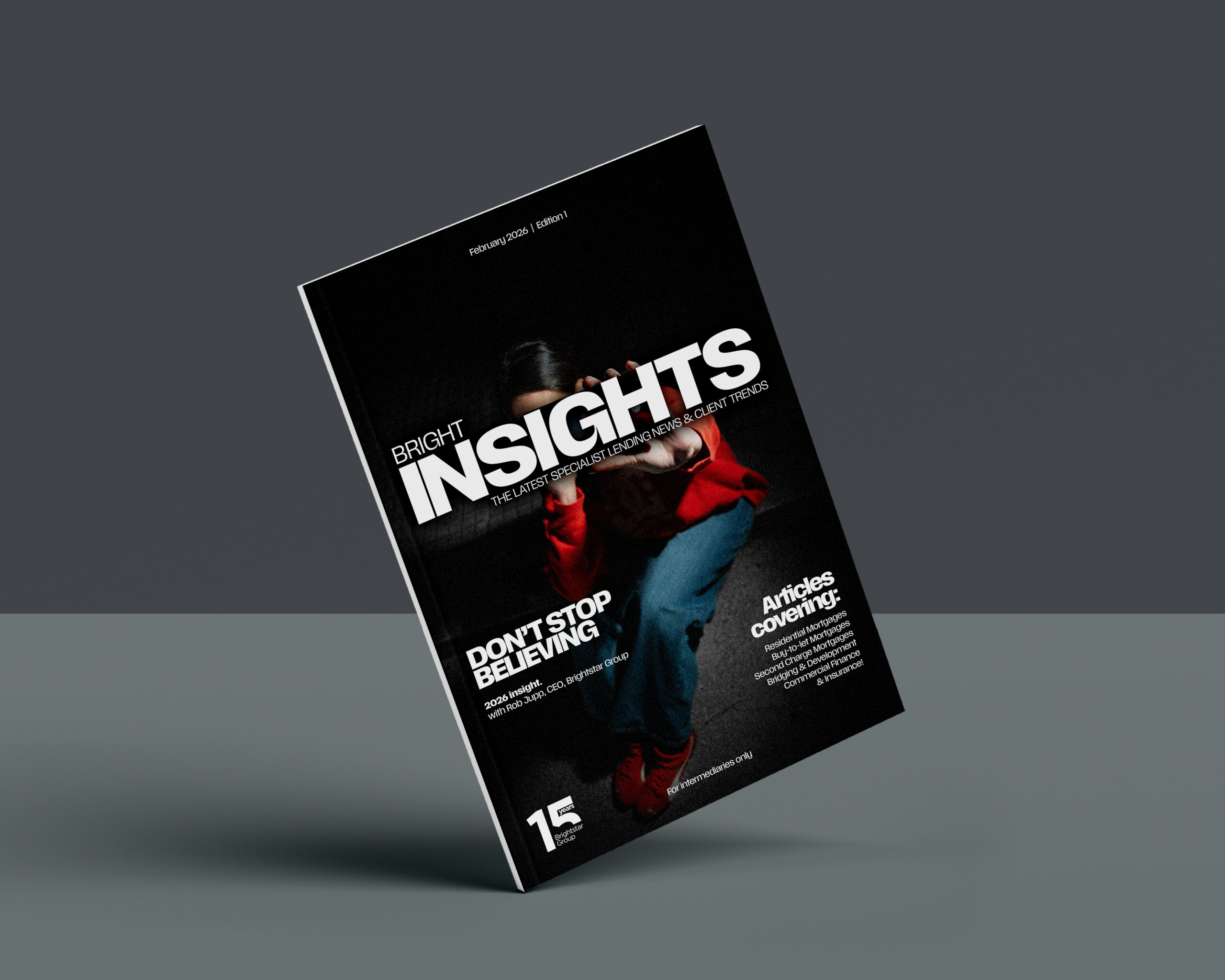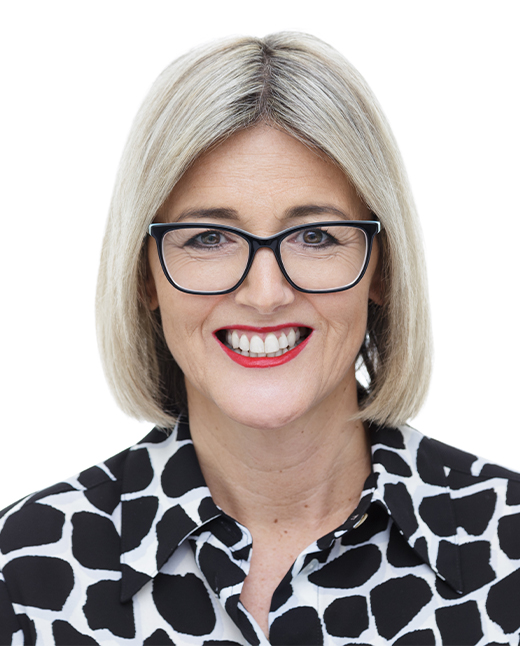April 2025
“There’s a sense of inherent bias within the system”
William Lloyd-Hayward shares his perspective on the progress being made for LGBTQ+ employees and customers in Financial Services and opens up about his motivations behind the Pride in Finance Alliance (PIFA).
The question of how much progress has been made when it comes to LGBTQ+ rights and representation in the financial services industry is one that continues to be asked across the mortgage, protection, and specialist lending space.
While positive changes are being made, recent statistics and an overall lack of data have highlighted that there is still a lot of work to be done to reach a more equitable, diverse, and inclusive space for employees and customers alike.
I spoke to William Lloyd-Hayward, Group Chief Operating Officer (COO) at Brightstar Financial and Sirius Finance. Will is a vocal campaigner for LGBTQ+ rights in the industry, as well as the co-founder and project lead of the Pride in Finance Alliance (PIFA).
He shared his thoughts on how far the financial services sector has come since he joined the industry in 2012, and how much further it needs to go.
“I think more people are openly engaged in having those conversations talking about who they are. When I started in the industry, it wasn’t legal for me and my husband to get married, so I think as society has changed, obviously the industry has changed.
“I think more people from the LGBTQ+ community talk about their lived experiences and share their experiences.”
“As society has moved on, it’s just less of a surprise for people when someone identifies as gay or lesbian. So, I think that’s been a real big positive sign of progress.”
“I think where there hasn’t been a lot of progress is probably understanding the level of injustice and the level of prejudice that is still out there, because for smaller organisations it can still be really hard for someone who isn’t necessarily comfortable with understanding their own sexuality to come out more broadly or to find allyship,” he continued.
Will also addressed the limited data and statistics available regarding the experiences of LGBTQ+ employees and customers in the industry, in comparison to initiatives such as the Women in Finance Charter, which was created in 2016 to track the progress of female representation in senior management.
“If women are still held back from the top jobs, if racial and ethnic minority groups are still held back from the top jobs, then I’m equally confident that people who identify as LGBTQ+ are either held back from promotions because their bosses or employers know, or they worry about having their sexuality in the public domain, so they will hold themselves back from seeking promotion.
“I guess the next stage of that is trying to drill down on what employees are comfortable to share, and what employers are comfortable to ask.”
“Would I have been comfortable saying I was gay before coming out? No. Would I have been comfortable straight away when I came out? Probably not. I’ve really made that conscious decision since the turn of COVID,” he said.
Despite the limited data available, some recent reports highlight the challenges that LGBTQ+ people face in the workplace. According to a 2018 study by Stonewall, 40% of employees who identify as gay, lesbian, or bisexual have experienced harassment in the workplace, a figure that rises to 55% for transgender employees.
Meanwhile, LGBTQ+ employees earn on average £6703 (16%) less than their heterosexual colleagues. In 2022, a TUC poll revealed that only in 1 in 8 employers were keeping track of their LGBTQ+ pay gap, and only 1 in 3 companies who have LGBTQ+ policies in place had updated them in the last 12 months.
LGBT Great’s ‘Redefining the Future: LGBTQ+ Talent Attraction and Perception’ report, released in December 2024, revealed that 40% of Gen Z LGBTQ+ talent believe that industry leaders in Financial Services are not effective allies to the LGBTQ+ community, while one in three professionals (33%) working in Financial Services said that they would not feel comfortable disclosing their sexual orientation at any stage of work.
“When you think about a more high-profile role in a business, you’re more under the spotlight and certainly for people that are either coming to terms with their sexuality, are not comfortable with their sexuality, or they just don’t want it to be a factor, they can make a very conscious decision not to do something,” Will said.
“I think businesses’ inherent bias is a big thing […] most people don’t realise they’ve got inherent biases in terms of the way they recruit, the way they employ, or the way they shortlist.”
In terms of customers, the 2023 Financial Lives survey revealed that LGBTQ+ customers were almost twice as likely as heterosexual consumers to say that they did not have confidence in the UK financial services industry, and to strongly disagree that financial services firms are honest and transparent in the way they treat them.
Furthermore, in 2018, a study found that one in four trans people and one in five non-binary people were discriminated against during their homebuying journey in the preceding year, with many facing the risk of deadnaming or misgendering during the mortgage application process.
“When you’ve got lenders that are insistent on knowing if someone is a Mr or a Mrs – I’m sure it’s relevant for some life insurers based on the way they risk and profile, but how is it relevant to a mortgage lender if I’m a Mr or Mrs, or a Ms? It isn’t really. It doesn’t matter on my mortgage offer; it doesn’t go on Land Registry. So, I think there’s a sense of inherent bias within the system,” Will said.
“I think if you force these elements of training in terms of understanding, it creates resentment and then you get people going off on rants about how the country’s gone woke, and it isn’t about being woke or not, it’s just about saying don’t try and make life difficult.
“You don’t need to ask how someone’s husband or wife is. Let the person drive what they’re comfortable in saying.”
“I always remember at industry events I never used to say that I was engaged. I used to say, ‘my fiancé and I, he and I are planning…’ – if I do say fiancé, everyone’s going to assume they’re a woman, and I need to get on the front foot before someone says something.
“For people talking directly to clients, there is probably a way of giving them some helpful tips and ideas about not predetermining your answers. Let the applicant guide you in terms of how they want to share information and then we can all learn from that,” he added.
In the last few years, Will has become an active voice for LGBTQ+ people in the industry. In 2024, he appeared on Mortgage Solutions’ Diversity and Inclusivity Finance Forum (DIFF) podcast and has been named as a changemaker.
For Will, this decision to be vocal stemmed from the absence of many LGBTQ+ role models in the industry.
“When I came into the industry, finding LGBTQ+ representation was not obvious because of course you can’t seek out someone that is gay or lesbian. So, I thought I’d make the conscious decision that, well, if there aren’t many role models around, then I’m going to make sure that I am one. And so, if there was anyone else out there who felt like they needed to reach out to someone, I’ve put myself out there.”
“I’m at a point where I feel comfortable and have backed myself to do it, and I’ve had two people reach out to me in the course of the last three or four years.
“If there ever is a reason for me being as outspoken as I am in a positive way, it’s because there were people that came to me and said ‘I’m struggling, I’ve not told anyone about who I am.’ For me, that was testament.”
The Pride in Finance Alliance launched at the Women’s Recognition Awards in October 2024, revealing its mission to, as is stated on its website, “encourage, develop and enhance an open and inclusive financial services industry for the LGBTQ+ community.”
Will described the Alliance as “an online forum for people within our sector – sharing good practices, sharing ideas, trying to set a standard within businesses in terms of supporting LGBTQ+ colleagues, benchmarking where they are, and seeing about opportunities.”
Will has also been very involved in raising awareness of mental health in the industry, having worked on the steering committees of the Mortgage Industry Mental Health Charter (MIMHC) and the Working in Mortgages project by the Association of Mortgage Intermediaries (AMI). He also chaired a panel discussion on mental health and wellbeing in the mortgage industry at Mortgage Adviser Event London 2024.
“There is a mental health crisis in the country, so the Charter has been a great thing to be involved with. We as a firm, we’re one of the six co-founders to set it up.
“It’s about saying to firms, join up and help set a standard so the people in your organisation know that you’re committed to supporting them if they have mental health struggles – you’re committed to try and find them support, you’re committed to looking at mental health champions and first aiders in your business.”
“There are a huge number of sole traders, smaller companies, and estate agency firms which have one to six employees. The MIMHC is about building that network of people, network of referrals, and information groups who can provide that support to those firms and those individuals.
“They don’t not want to support their staff and mental health, but they don’t have the time or the expertise, and that’s where the Charter really helps to signpost people and create a big community where you can say ‘look, we can’t help but why don’t you reach out to that member, see what they can do?’ That for me has been the biggest success,” he said.
An intersectional approach to EDI is something that Will believes can positively influence progress across the industry.
“I think there’s a level of complexity now in terms of the different things that hold people back from being confident to apply for jobs. That intersectionality and that crossover of dynamics is just becoming more and more relevant in terms of knowing that a diverse workforce is the best workforce, and I think most employers are starting to see that.
“I think the big thing is trying not to worry about being all things to everyone and trying to tackle every issue. What’s really important to me is LGBTQ+ representation – making it a safe space and creating allyship,” he said.
“We’ve only got so much time, so I want to make sure that I’m focussed on what I’m really passionate about and what I’ve got knowledge about, in the full knowledge that there are some great people out there pushing another lever to help progress.”
“If we’re all pushing levers together on our own, it’s all going to help us move in the same direction,” he said.
At the Women’s Recognition Awards, we believe that working together for a better, fairer industry is our collective responsibility, and that we can all have our own impact.
Nominations for the Women’s Recognition Awards 2025 will open on 7th May, supported by headline sponsor London & Country Mortgages. So if you or someone you know is a force for change in the industry, get ready to nominate them soon!



